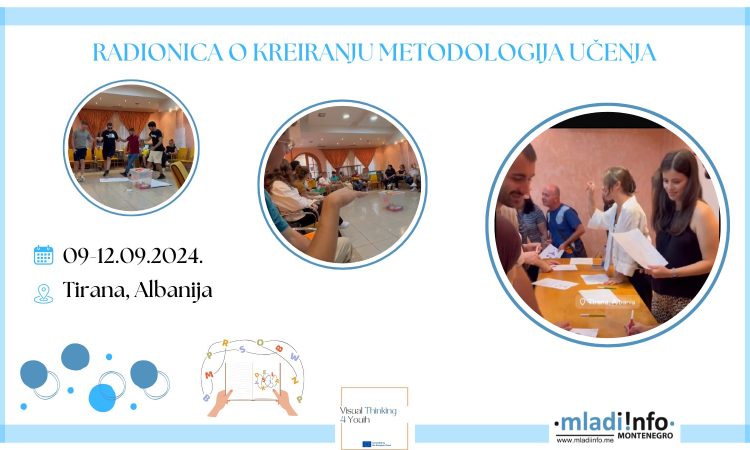From September 9 to 12, 2024, representatives of the NGO Mladiinfo Montenegro participated in the training “Visual Thinking 4 Youth” in Tirana, Albania. The training brought together participants from several countries in the region – Italy, Albania, Montenegro, North Macedonia, and Bosnia and Herzegovina – with the goal of developing learning methodologies adapted for individuals with dyslexia.
During the four-day training, participants engaged in interactive workshops and lectures, gaining a deeper understanding of dyslexia, how to identify individuals dealing with it, and methods to facilitate their learning, reading, and writing processes. Special emphasis was placed on the importance of visualization and the use of visual thinking in the educational process, which can be particularly beneficial for individuals with learning difficulties, such as dyslexia.
Participants first covered a theoretical segment before moving to practical activities, where they developed creative approaches to creating visual materials to help individuals with dyslexia absorb new information more easily.
One of the key components of the training was the creation of video materials specifically designed for individuals with dyslexia. Working in teams, participants planned and recorded videos based on visual thinking methods, tailored for easier comprehension. These video materials employed simple language, clear structure, and rich visual elements to ensure better understanding and retention of content.
Through these activities, participants gained greater awareness of the needs of individuals with dyslexia and acquired skills applicable in future work with youth, whether in the educational sector or through various non-governmental organizations.
Additionally, the training provided a platform for sharing experiences among participants from different countries. The participants from Montenegro highlighted the importance of regional cooperation in addressing educational challenges, emphasizing that the knowledge and skills gained during the training are invaluable for improving the local educational system, particularly in the area of inclusive education.
In conclusion, our participants gave positive feedback about the training, noting that they gained new knowledge and skills as well as new friendships.

